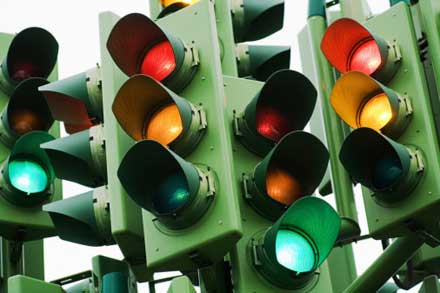Van Beek's blog
Typical Trend Following Questions
Submitted by Van Beek on April 12, 2011 - 05:34
Other visitors of this trend following blog are sending us their questions and comments. You are welcome to do the same. In blog posts like this we answer some of these questions.
In this blog you find information about investing with the objective to make great long-term results without taking too much risk or too much of your time. Trend following of long-term trends in stock market indices is simple and straightforward.
The trend signals that we use to recognize the direction and changes in the trend are based on moving averages and patterns in the closing price. Here are two frequently asked questions on this:
Why is China Facing Inflation?
Submitted by Van Beek on March 26, 2011 - 04:34
Here are 5 reasons why China is facing inflation. High inflation is a nightmare scenario for the Chinese government. It could result in social unrest.
Common Questions About Trend Signals
Submitted by Van Beek on March 21, 2011 - 07:47
As one of our readers, you are welcome to send us any questions with regards to Trend Signals for the stock market and long-term investing. You can contact us here. Trend investing is simple, but when you are new to it, you probably will need some clarifications.
Here are a few questions that we received lately. Do not hesitate to send us your questions as well. You get a private answer by email and sometimes we use our answers as well for blog posts like this. Asking questions is always free.
Long term Nikkei and Yen Trend before the March 2011 Earthquake
Submitted by Van Beek on March 17, 2011 - 11:49The March 2011 earthquake, tsunami and nuclear disaster in Japan have a significant impact on the Japanese stock market index (Nikkei) and on the Japanese currency (Yen / JPY). But what were the long-term trends for the Nikkei and Yen before the disaster happened?
On this page you find a short video and the Prezi presentation that was used for the video.
You'll see what the long-term trend and moving averages trend signals were for the Nikkei and for the Yen versus the Dollar and the Euro.
For the Prezi presentation that is used in the video (no sound in the presentation itself), see below:
Will the earthquake in Japan change the long term trend for the Nikkei?
Submitted by Van Beek on March 15, 2011 - 06:33
The earthquake and the subsequent tsunami in Japan are a tremendous disaster. Thousands of people have died and many more lost their loved ones.
My sympathy goes to all victims. There could be even a catastrophe now with the nuclear power plant. But in the financial world there is no such thing as sympathy. It is all about profit and panic.
On March 14, the first trading day after the earthquake, the Nikkei lost 6.2% in value. Today, the 15th, at the moment of writing, the Nikkei has lost another 14%, probably fueled by the news on the nuclear radiation leaks. In one-and-half day, the Nikkei has now thus lost almost 20% of its value.


